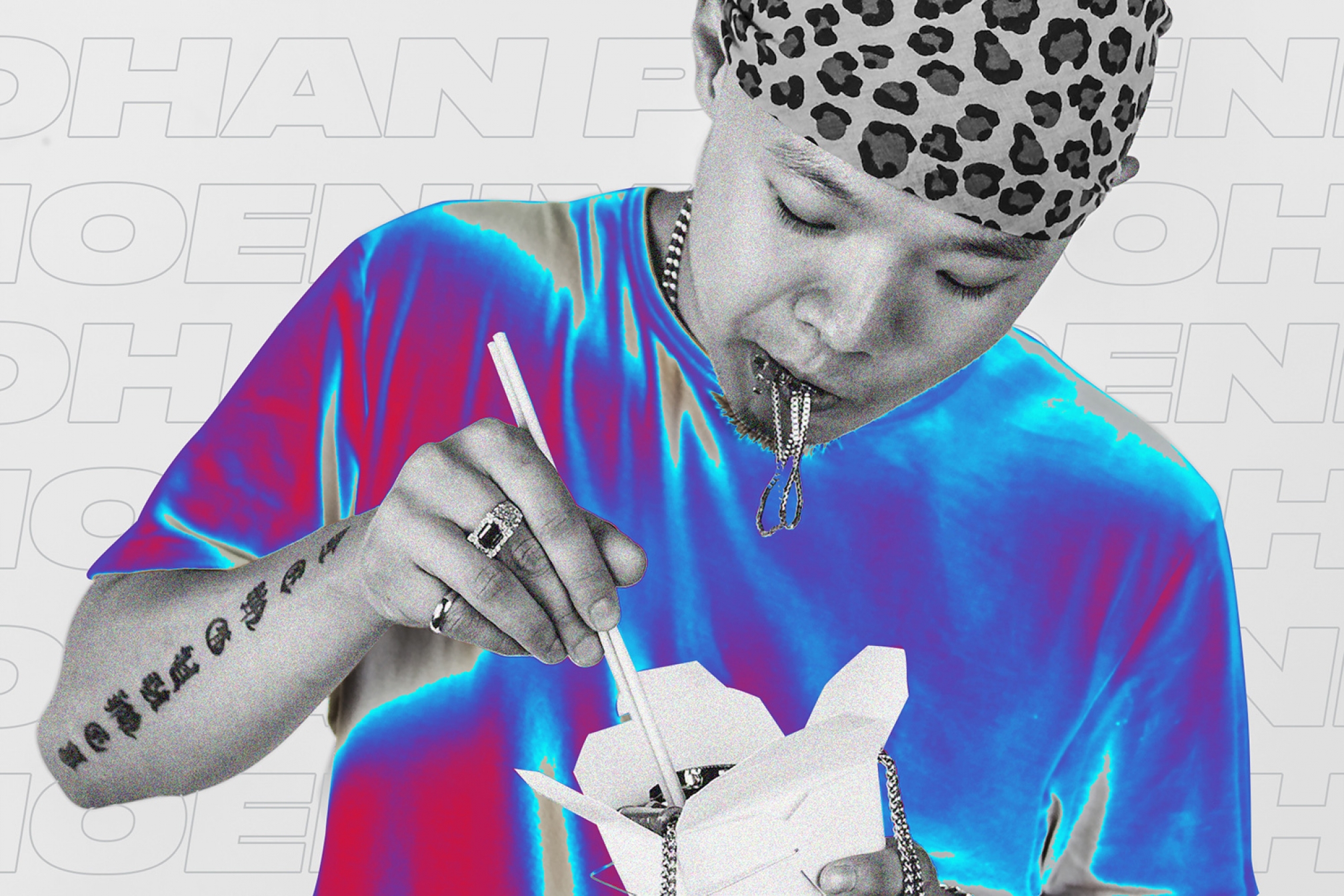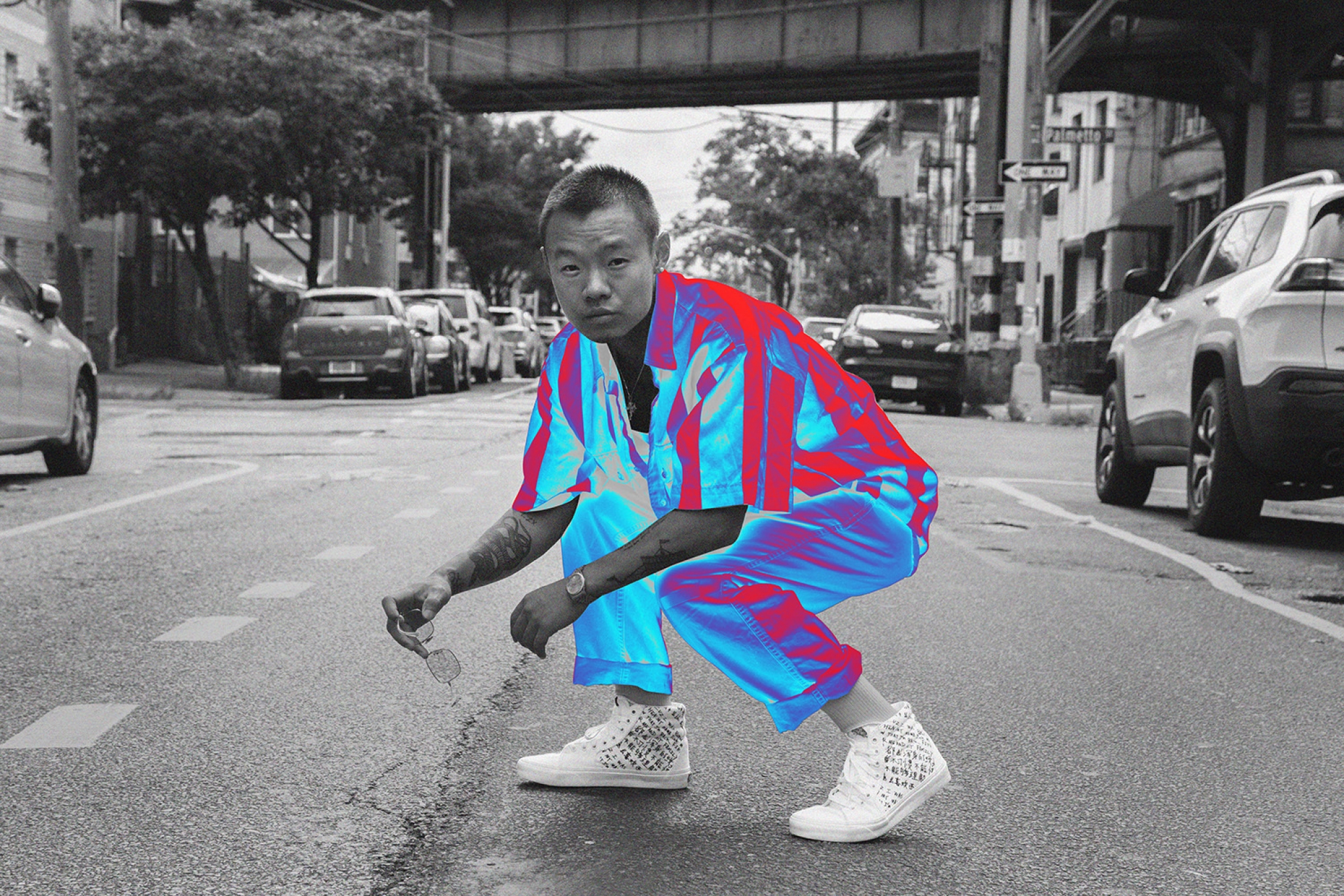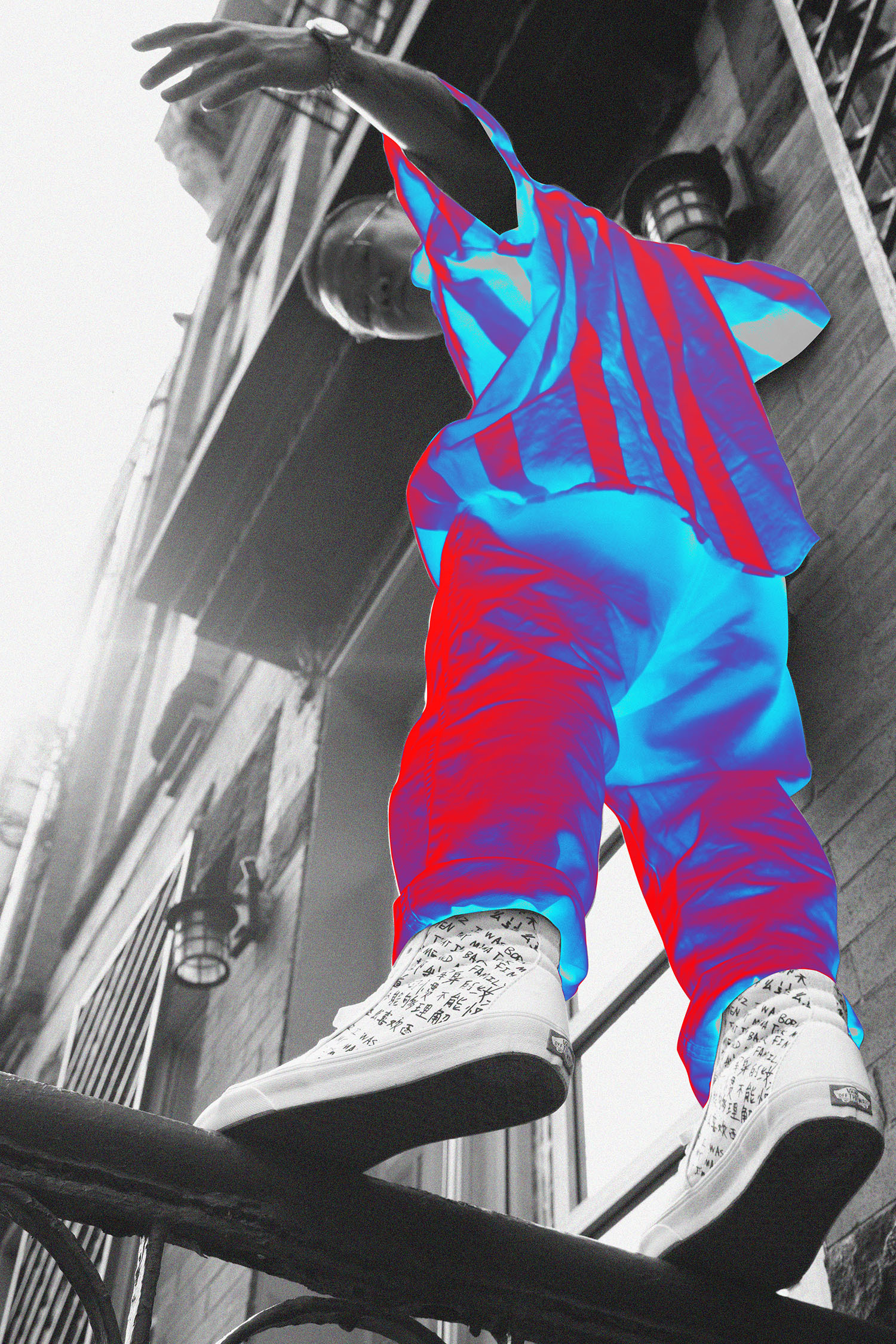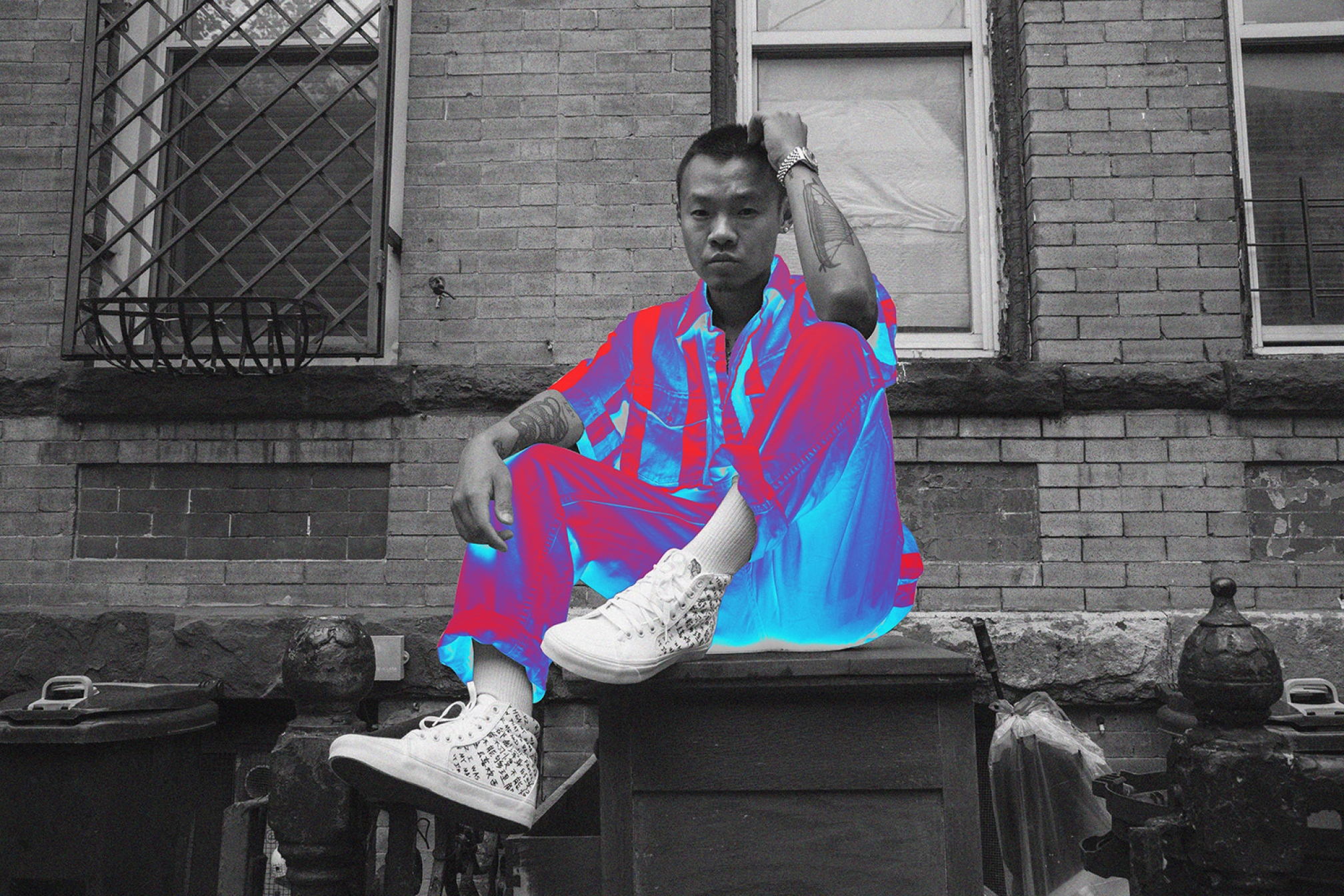 Features
Features
A Fine Balance: Why rapper Bohan Phoenix left the birthplace of hip hop for China
Like a cultural pendulum, the transnational artist explains how he straddles two cultures as an indie artist
Hip hop was born in America. You could even narrow that down to New York if you wanted to be specific. New York is also where Bohan Phoenix spent seven years cutting his teeth as a rapper. For a kid that was born in Hubei, China and raised by his grandparents, it’s what many people would call living the proverbial dream. But back home, China was in the early days of establishing its own hip hop roots and Bohan Phoenix wanted to be a part of that history. So he left that dream for a new one and moved back to China, delving into the newfound avant-garde territory with wild abandon.
Hip hop in China isn’t new. It’s been fermenting since the early 2000s, but in 2017, a television show called The Rap of China saw the genre emerge from the fringes of culture into the mainstream. Suddenly, hip hop had clout and kids in the Middle Kingdom were frothing at the mouth for more of it. Unsurprisingly, now China is one of the fastest-growing music markets for hip hop and for the most part, the western world isn’t really paying attention, yet — except maybe for 88 Rising (Bohan's collaboration with Chinese rap group Higher Brothers called 'No Hook' has amassed more than 1.4 million views on YouTube).
That’s where Bohan Phoenix comes in. Straight out of Chengdu, the recent returnee’s music is a syncopated harmony of the two transnational cultures he grew up in: rapid fire lyrics riffing in English and Mandarin with stories centred around his cultural identity and experiences as an immigrant — altogether challenging western stereotypes about hip hop. Bohan Phoenix is an anomaly in both worlds and his Twitter tagline says it all: "too foreign for here, too foreign for home.” Coupled with a recent partnership with Vans, Bohan Phoenix has become a voice and an inspiration for China’s collective generation Z, delivering his message through the raw, honest and hard-hitting narratives of hip hop.
With a little extra time on his hands while on lockdown in the US (he doesn’t have Chinese residency anymore so is riding out the shit storm in New York), we talked to Bohan Phoenix about his unique ability to straddle cultures through music, the ebbs and flows of Asian diaspora for indie artists and his recent shoe drop with Vans, which brings to life two of his songs on some classic Vans kicks.

What’s the best thing about living in China?
Food. The food is amazing. Especially Sichuan foods and the spicy food in Chengdu. I miss that a lot right now.
What’s the best thing about living in the US?
I was born in China, and familiar as I am with how to live there, I still feel more comfortable in the US. Part of that is because my English is better than my Chinese. So at the end of the day, the US still feels more like home. And my mom is here, too.
What’s one thing the world doesn’t know about Asia’s music scene?
This is something I only recently discovered myself, but Asia’s music scene way bigger, more diverse, and more interesting than a lot of the stuff that's happening in New York, for example. I live in New York most of the time, but I like how Asia’s underground scenes are more community-oriented.
So you were born in China and bred in the US, where hip hop culture was practically invented. For someone whose career is cemented in American music culture, why the move back to China?
In 2017, I had been in New York for seven years and felt ready to try something new. Two years earlier, my friends and I had the opportunity to go to China with VICE China to do a tour. It was then when I learned that there was a strong desire for live music in China, especially hip hop, which was experiencing a new wave of popularity and spreading to many new fans for the first time. I decided I needed to move back there and see it for myself. I'd always wondered how exciting it would have been to be in New York when hip hop had just started, and in many ways, that’s what was happening in China at the time.
Also, I moved to the US when I was 11, and besides going back to China to visit family, I had never really lived there as an adult. And as someone who was rapping in both English and Chinese, I wanted to really understand what life there was really about.
And what did you find when you got there? What’s the hip hop market in China even like? Are there nuances in its music scene that people in the west might not know about?
One thing that I found was that young people in China valued individualism more than I thought, and more than they may have a decade or two. In the past, people valued fitting in and getting the best grades you could and taking a safe path. But now, kids are being taught, "Yo, you can be a musician. You can do this and pursue your dreams." The new generation has more options now, and that's reflected in the music and in China’s nightlife culture. There are so many venues for all different types of music!
And in China, let's be honest, there's really no drinking age. Doing shows out there can be so exciting and different because there are all these venues that are packed with 500 or 1,000 kids waiting for a hip hop artist to come on, even if they don’t know about them. Especially in smaller cities, they're just there because they're excited about hip hop! There’s less of an emphasis on drinking, so much that sometimes it feels like nobody is getting fucked up. They're just there to have a good time!
There really is this pure excitement about the Chinese hip hop market right now. It's a real desire for something new, something that didn't really exist two decades ago. Sure, it existed in little bits and pieces, but now it's in the forefront and it's just so exciting.
Style, sound, language, marketing, social media: these are all important to factors in selling music just as much as the quality of the song itself. How do you balance and cater to both cultures at the same time?
My manager Allyson and I have had many conversations about this. It's actually one of my current challenges: be better at social media on both sides because humour and other interactions are wildly different in different languages and cultures. A caption that will work on Instagram, even if translated perfectly into Chinese, doesn't have the same effect. So it’s a lot of work to juggle both sides.
Because of this, I used to just make social media about updating stuff, like "I got a new song, new shows." But slowly I'm finding more ways to work my personality into making some new content, and really enjoying doing it now, too. For my US fans, I’ll be streaming on Twitch starting this week! I’ll be sharing and reviewing music, streaming studio sessions, and maybe even teaching some Chinese.

The Chinese diaspora is spread far and wide around the world when it comes to culture — but music not so much. Rather, it’s been slower. Why do you think that is?
I think China is just such a big market that because a lot of artists build something that's so strong domestically, and develop really strong relationships with their fans in China, that they have little desire to reach out to the rest of the world. And I think that's a beautiful thing, too. China also has all its own social and streaming platforms that are mostly unknown outside of the country, so it can be a lot of work to or feel like starting over to jump on all new ones.
I also think the Rap of China show blew up hip hop overnight. A lot of people realized that "Oh, I can just look a certain way, rap a certain way and I can get shows." At least in China. And so for a lot of people, that's all they really want to do. They can have a great career in China alone, so there’s less of a desire to reach out to a place where they never thought about going.
But there are a lot of incredible musicians in China and very few of them think, "Man, I wish someone in the US would really care about what I'm doing right now." It's really interesting for me coming from the West where the mindset is more "I want everybody to know about me."
I guess you did it the opposite way around, but what would you tell an Asian artist to do if they wanted to break out in the west?
One of the things that I've realized over the years—and I've tried many things, many songs and many styles—is that the things that move all of us as human beings are stories we can relate to. When I'm in New York, a lot of the times my shows are not really an Asian crowd at all, but people come because they can relate to the stories I'm telling. Stories are something that we are all attracted to.
So if I were to tell an Asian artist that wants to break out into a global scene, I'd just focus on making good music — but nothing that's trying to exoticize yourself because you're Asian or whatever. Just make the best music you can because if your goal is to try to be respected in a global sense, you've got to make the best music to be a part of the conversation.
How have your own cross-cultural experiences shaped your music and creativity, and the themes you explore in both? Are these experiences what you feel have given you cachet in both cultures?
Much like a lot of people from my background, we inevitably draw inspiration from our experiences on both sides growing up and just living life. The reason I got into music is because of how it affected me — the music itself, the stories, the people that I keep around me and the style of music that they make. For me, I'm very much rooted in storytelling and I'm not really good at doing all the flashy stuff. That might give me more views and more hype quicker, but I just stick to what I know and my fans appreciate the consistency.
You’ve started releasing music in both Chinese and English. What prompted this move?
I think everything just starts with imitation — like walking, talking and whatever. For the longest time, I just wanted to impress people with how well I could rap, like Eminem or like Tupac (the people that got me into hip hop when I first started listening). And as impressive as I can be when I get up to an open mic and freestyle, I wasn't really saying anything about myself. And with hip hop, you really got to bring your own shit, otherwise, people can just see that you're just biting and doing someone else's thing.
So I realized that it wasn't only about being more genuine in my songs, but that I could also bring in a whole other language into my music and storytelling. I'm not the only Chinese person living in China, and I'm not the only Chinese person that was born in the US — there are a lot of people just like me. So I realized that if I could just equip my music with both my native tongue and my first language, it’d feel more like me and could help me stand out.
China has built many music stars based upon its idol culture. You could make a lot of money going down that avenue, and you’ve certainly been courted by labels as well the show Rap Of China. What’s keeping you grounded?
We're doing all right as independent artists haha.
So, they [Rap of China] had reached out to me three years in a row. And in the third year, I almost went. Like, "Look, there's a lot of money to be made." But also, "A lot of money to be made" comes with a lot of bullshit. You have to start dealing with a lot of people that you wouldn't otherwise have in your life. And for a whole year, your life is dictated by them. I’ve heard you basically only get to play shows or make appearances organized or approved by them.
Even when I was talking with the show’s producers, they were like, "Oh, you can't wear your bandana." Or, "You have to speak more Chinese." If I was younger, like 18 or 19, I would have been on that show because, in my mind, the only thing would have mattered to me was the dollar signs. But I think because I was lucky enough to have spent time in New York and experienced a lot before moving to China, I knew I couldn't do something like that and sleep well at night — no matter how much money it was going to put in my pocket. I'm not broke, I'm never going to be broke...I'm just too much of a hustler to go broke...so I'm not going to put myself in a situation where I'm going to bed and I'm like, "Damn, I don't want to do this tomorrow."
So what you’re saying is that you don’t need to be picked up by a label to make it big? What advice would you give to rising talent in Asia looking to break out then?
Listen, any label who's reading this, we're looking for a deal that works for both of us! We are open to collaboration with everybody, it just has to make sense. And to offer some advice to artists who want to enter this world, you just have to know what labels need, what type of team that they have and what they need help with. And if it makes sense, go for it.
I have a friend that I met right before lockdown who is Tibetan and just an incredible singer. And she's hella young, and I could tell she was hella excited — she had signed a deal with this big label in China. This was six months ago, she was excited. She was like, "Oh, yeah, they're giving me money to go to any country." And now, six months later, she's like, "Damn, I really feel like I shouldn't have signed that." She feels stuck and that they don't really care about what she's doing ultimately. So yeah, I think it just has to make sense for whoever is considering signing to a label. It really needs to be a partnership with mutual respect and the shared goals to work out right.

Yet you’re sponsored by VANS. We get it, partnerships usually equate to some free shit…but I’m sure there is more to it. How do partnerships with brands like VANS help artists grow?
Again, I think the emphasis for me and why people would even spend time listening to my music is again, storytelling. And I think Vans does a great job with that. They know just from working with skateboarders that resilience plays a big part in the success of an artist, skater or creator.
Every artist has woken up one morning and thought, "What the fuck am I doing?" And sometimes we just have these crazy doubts. In those moments, you need resilience and often look for validation in times of doubt. Whether it's through a song that had a lot of plays, or a video that did really well, or a partnership like with Vans...bit by bit these things help propel you forward and make you feel more assured in the path you’ve taken.
Vans has been supporting underground culture, skaters and artists for decades now, and it was honestly an honor to work with such amazing storytellers to help share my own alongside another great artist, J.I.D. Vans’ Off The Wall is all about being different, true to yourself, creative and bold, so part of our partnership was me coming up with some designs that represent me so people could use them to make their own Vans Customs. I took inspiration from my two songs ‘JALA’, because I’m all about the spicy Sichuan food, and ‘OVERSEAS’, a track about my life growing up in two different worlds. I worked with a dope designer in Oakland named Jordan Yee who helped bring the designs to life. ‘JALA’s is red hot chili peppers and text reading ‘JALA’ in English and Chinese, and ‘OVERSEAS’ is actually the lyrics to the song (both English and Chinese) in my handwriting. Right now they’re only available in Asia, but I’ve got homies all over the world hitting me up asking where to cop!
If you could give one piece of advice to a younger you, what would it be?
Have more patience and enjoy the whole process a little more. Take your time with it.
Who is inspiring you right now?
Actually, my roommate — Zachary, who goes by Jachary. He’s making a lot of incredible music and he's always been a constant inspiration, introducing me to artists and sounds I might have never found without him. Right now, because our studio is in our basement, I hear him making music all the time and really, it's been a big push during lockdown to keep myself going too.
Survival tip for the future?
Read books.
What do you wish people knew about you that they don’t?
That I read books. No, actually, that I can cook really well. Well...there are certain things that I can cook really well.
What’s your wellness hack?
Since quarantine has started, biking! I've been biking from Brooklyn to the East River every morning and just taking in the early-morning calm. And it's been really nice for keeping me balanced during the rest of the day.
Favorite electronic musician?
Aphex Twin
And if the world were ending, what’s the last song you would play?
Any song from the D’Angelo ‘Voodoo’ album!
Read more about the Vans Musicians Wanted campaign here, open now to artists in Asia


